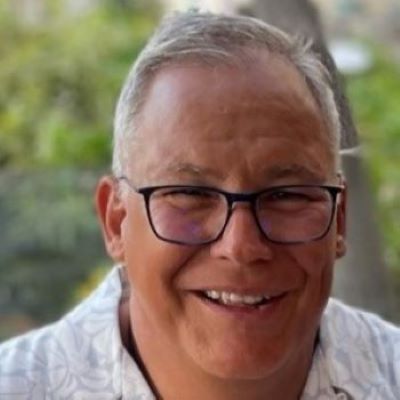Rich was 51 years old when he began experiencing an increased need to urinate. He saw a urologist, who diagnosed him with benign prostatic hyperplasia (BPH) and prescribed medication to alleviate it.
After two-and-a-half years, Rich’s symptoms of increased urination returned. He went back to the urologist, and biopsy results led to a diagnosis of prostate cancer.
Rich met with the surgeon and radiation oncologist to discuss treatment, and both doctors suggested that he undergo surgery rather than radiation. For an additional opinion, he also met with a medical oncologist who was not involved in his care. That oncologist felt that either surgery or radiation treatment options would be effective. Although Rich knew that surgery could lead to urine incontinence and could affect erections, he chose to go through with surgery. He wanted the reassurance that all cancer would be removed. At the end of 2019, Rich went in for the prostatectomy, but it was aborted. The doctor found that the cancer had already spread beyond the prostate. Rich returned to the medical oncologist, and a new treatment plan was developed. Soon after, he began androgen deprivation therapy (ADT) and radiation.
Rich’s treatment began during the beginning of the COVID-19 pandemic. He ultimately underwent 44 sessions of radiation and two years of ADT. He felt terrified because his immune system was impaired by the treatment, and that fear was compounded by the pandemic. He was particularly concerned because the clinic where he met with the medical oncologist was turned into a COVID-19 hospice unit.
Rich connected with his medical oncologist and radiation oncologist regularly. They allowed him to record all his doctor visits so he could go back to his recordings and review what was said, including information that he might have missed. There were a few things Rich was surprised that his doctor didn’t inform him of, that he knew from other men who had had prostate cancer treatment: certain sexual practices of gay men should be avoided through the course of radiation, in particular receptive anal sex. He wished that his doctor had discussed that with him.
“I think doctors don't have a real great understanding of the needs of a gay male patient and how they might be different from a straight patient. And so, I’ve had to be the educator of some things to the doctors…about what I needed to do or not do related to the treatments and the impact of the treatments.”
The prostate cancer treatment had a serious impact on Rich’s life. With a loss of testosterone from the ADT, he dealt with hot flashes, weight gain, energy loss, lack of motivation, and lack of libido. He was able to maintain erections throughout the whole treatment but did not have any drive to engage in sex with his husband.
Rich is grateful for a wonderful support system throughout his diagnosis, treatment, and beyond. Many of his family members have experience in the medical field, which provided a close network of individuals he could go to for information and support. His family, including his two children, two grandchildren, husband, and ex-wife, have been there for him personally and professionally. His husband went to many of the doctor visits with him, even during the COVID-19 pandemic.
Rich is also involved in a 12-step recovery program for addiction and with Malecare, a prostate cancer patient advocacy group. He joined a Malecare gay men’s prostate cancer support group, and he now facilitates two of those groups.
As Rich reflects on the past few years, he recalls that he was reluctant to even identify himself as a cancer patient after his diagnosis. He believed that once the cancer was removed, he would not have to worry about it at all anymore. But after two years of intensive treatment, Rich accepted it. He now has blood work done every three months to monitor his health.
“I guess I still consider myself an active prostate cancer patient rather than a survivor. And…I know this may sound strange: this isn’t a negative in my life. It’s something that is a part of my life. And I think there’s a level of acceptance that I have gained over the course of the last three years – of recognizing that there are things that I can do to try to make my life better, and following recommendations, following protocols, getting support from other prostate cancer patients, offering support, staying up on some of the latest advances, hearing what other people are doing. But I identify myself as a part of a community of folks that are…living with prostate cancer rather than surviving from.”
It’s been one year since the end of Rich’s treatment, and the negative effects of ADT have subsided. The hot flashes have lessened, and his libido is returning. Rich has been going back to the gym more frequently and is regaining his energy and strength. Looking forward, Rich hopes to retire early from his job as a social worker and to travel with his husband.
"I would encourage people… [to] find support from like-minded folk, because I think that has been a significant area of support in my life. Recognizing that fellowship and bond with other gay men who are prostate cancer patients has been very important in my life.”

Image: Rich
I would encourage people… [to] find support from like-minded folk, because I think that has been a significant area of support in my life. Recognizing that fellowship and bond with other gay men who are prostate cancer patients has been very important in my life.”

